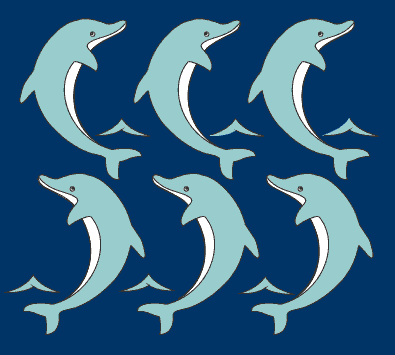BSC 22.B.d
TERMS OF REFERENCE OF THE ADVISORY GROUP ON POLLUTION MONITORING AND ASSESSMENT (AG PMA)
The Advisory Group on Pollution Monitoring and Assessment (AG PMA) gives advice to the BSC on "the regionally coordinated networks of national status and trend monitoring and assessment programs for the decision making purposes" (Annex I, BS SAP, 1996).
Legal Status and Institutional Structure.
The Advisory Group on Pollution Monitoring and Assessment is an integral part of the Black Sea Commission institutional structure and constitutes its subsidiary body:
a) The AG PMA is comprised of the national focal points nominated by the member of the Black Sea Commission, director of the relevant activity center and is responsible for facilitation of links between the Black Sea Commission, the relevant national authorities and regional and national scientific expertise; the national focal points are responsible for the accurate and timely delivered national information on the pollution monitoring and assessment as it deems necessary for the Black Sea Commission.
b) The Advisory Group on Pollution and Assessment is supported by Activity Center on Pollution Monitoring and Assessment, Odessa,
c) Following the Rules of Procedure of the BSC the AG PMA may propose that any individual able to provide expertise related to the monitoring and assessment of the Black Sea environment and assist in producing the recommendations required by the BSC as well as assist the training activities within the work program of the Group will be invited to the events within the working plan of the Group.
Main responsibilities
The AG PMA acts in advisory, coordinating, and information capacities for the regional purposes of the Black Sea Commission including but not limited to:
1. drafting recommendations and policies for the Black Sea Commission for the followings:
a. establishing regional environmental quality objectives, criteria and, where possible standards, for assessing the state of the environment taking into account the holistic approach;
b. formulating the regional policies and proposing actions for regional pollution monitoring and assessment, bathing water quality included;
c. strengthening of the relationships between all the interested parties in the region (environmental authorities, health authorities and both national and international relevant institutions and governmental bodies and international organizations such as UNEP, EU, EEA, etc. , the business and public sectors) in the field of monitoring and assessment;
2. acting as a regional consulting body for regionally important activities related to environmental monitoring and assessment for the Black Sea coastal states in close collaboration with relevant national authorities, EEA and other organizations;
3. identifying the needs for the regional training relevant for environmental monitoring and assessment, including quality assurance and quality control and inter comparison exercises;
4. drafting proposals to attract the national and international financial assistance for implementing regionally coordinated Black Sea Integrated Monitoring and Assessment Program (BSIMAP);
5. ensuring timely data flow, reviewing tools for assessment and data presentation to the regional database on the environmental status of the Black Sea ecosystem as an integral part of the Black Sea Information System.
Main tasks
Specifically, the Advisory Group on Pollution Monitoring and Assessment is responsible for preparing the recommendations and documents to be considered by the Black Sea Commission and the regional coordination of following tasks:
- preparation and regular revision of the Regional Integrated Monitoring and Assessment Program for assessing environmental status and trends in the Black Sea;
- setting up Quality Assurance/Quality Control services for environmental chemical, biological, and ecotoxicological analyses;
- coordination of pilot monitoring activities and facilitation of information exchange between the Contracting Parties;
- coordination of regional training exercises in monitoring and assessment and quality assurance and quality control;
- coordination of regional multi-disciplinary expert consultations for revision, as it deems necessary, common environmental objectives and standards for different water uses in the Black Sea taking into consideration the European Water Framework Directive as adopted on October 23, 2000;
- at the request of the Commission, establishment of an assessment plan for the issues under consideration, including assessment tools, procedures and criteria. The assessment plan shall allow the integration of information from the national monitoring data at the regional level;
- development of the set of technical guidelines to assure the uniformity of measurements and establish the quality assurance system for the regional and national monitoring efforts;
- development of a regional database on the pollution and its impacts on the Black Sea ecosystem and human health; maintaining a comprehensive information flow between the stakeholders of the Contracting Parties, the general public included.
Interaction within the Black Sea Commission Institutional Structure
The AG PMA is directly subordinated to and supported by the Black Sea Commission and its Permanent Secretariat and shall report to the Black Sea Commission on annual basis. The general coordination for the AG PMA is assigned by the Commission to the appropriate officer of its Permanent Secretariat and supported by the Coordinator of the Activity Center on Pollution Monitoring and Assessment, Odesa,
1. with National Monitoring Networks and research institutions in all Black Sea countries, international research programs and projects and bodies such as IAEA`s Marine Environmental Laboratory, IOC`s Expert Groups, UNEP, WHO, WMO, EEA, GOOS, etc.;
- with the Advisory Group on Biological Conservation to include the appropriate biological indicators and biological effects of pollutants in the regional strategy for monitoring and assessment;
- with the Advisory Group on Pollution Control from Land-based Sources to establish the comprehensive system of indicators for pollution reduction from the land-based sources, to elaborate the regionally harmonized methodologies for assessment of pollution loads from the land based pollution sources in the Black Sea basin and to recommend measures for their reduction in order to assist decision making process for the Commission on the Protection of the Black Sea Against Pollution;
- with the Advisory Group on Development of Common Methodologies for Integrated Costal Zone Management on identifying pressures on the Black Sea ecosystem from human activities;
5. with Advisory Group Environmental and Shipping Safety Aspects of Shipping in order to establish the system for emergency monitoring in the case of accidental pollution or natural disaster and revising the Protocol on Dumping and developing the guidelines for management of dredged spoils;
6. with the Advisory Group on Fisheries and Other Marine Living Resources in the assessment of the environmental conditions of the spawning grounds, environmental impacts of fisheries on ecosystem and human health, and effects of "hot spots" on living marine resources in the region and establishing the sensitive areas and their mapping in particular referring to the migratory routes of transboundary fish species;
7. joint and/or ad hoc groups from time-to-time, particularly on such issues as pollution assessment, fisheries development and environmental impact assessment, amongst others.
Interaction with other conventions and stakeholders
In order to achieve tangible results and benefit from the international experience the AG PMA when authorized by the Black Sea Commission and on its behalf shall seek:
- the coherence and coordination of overlapping activities with international research programs and projects and bodies such as IAEA`s Marine Environmental Laboratory, IOC`s Expert Groups, UNEP, WHO, WMO, EEA, GOOS, etc.;
- best use of expertise and institutional capacity within the region and, within its work plan approved on an annual basis by the Commission, cooperate on specific tasks with any institution or expert that it considers appropriate;
- collaboration with National Monitoring Networks and research institutions in all Black Sea countries in order to achieve sustainability and continuity of the implementation of BSSAP;
- information of general public and NGOs communities on threats and trend in the state of the environment of the Black Sea and raise public awareness on above issues;
- twinning projects with UN and European conventions like MARPOL, EIA, OSPAR, HELCOM, etc.
Reporting requirements:
In order to facilitate the Black Sea Commission work and to lessen the burden of the national reporting to the Bucharest Convention the AG PMA shall develop and implement a comprehensive reporting system on the state of the environment of the Black Sea, namely:
- elaborate and regular update questionnaire on the state of the environment of the Black Sea relevant to the implementation of the Black Sea Strategic Action Plan and major trends in the state marine environment,
- prepare and submit its work plan to the Permanent Secretariat two months prior the annual Black Sea Commission meetings for its approval and incorporation in the Black Sea Commission Work Plan,
- compile the annual report on current status of environmental state of the environment of the Black Sea in a format approved by the Commission two months prior the regular Commission meeting,
- in cooperation with other advisory groups and the Permanent Secretariat prepare and submit a chapter "trends and threats to the Black Sea Environment" to the State of the Environment of the Black Sea Report every five years two months prior the Meeting of the Environmental Ministers,
- The AG PMA shall convene a meeting at least once a year but no later than two months prior the Commission Meeting. More meetings could be called upon availability of funds and urgency of the issue under discussion. The Minutes of each AG PMA meeting should be delivered to the Permanent Secretariat but no later than 10 days after meeting.
The AG PMA shall review the Terms of References, make necessary changes, as it deems necessary and submit it to the Permanent Secretariat two months prior the Commission.



